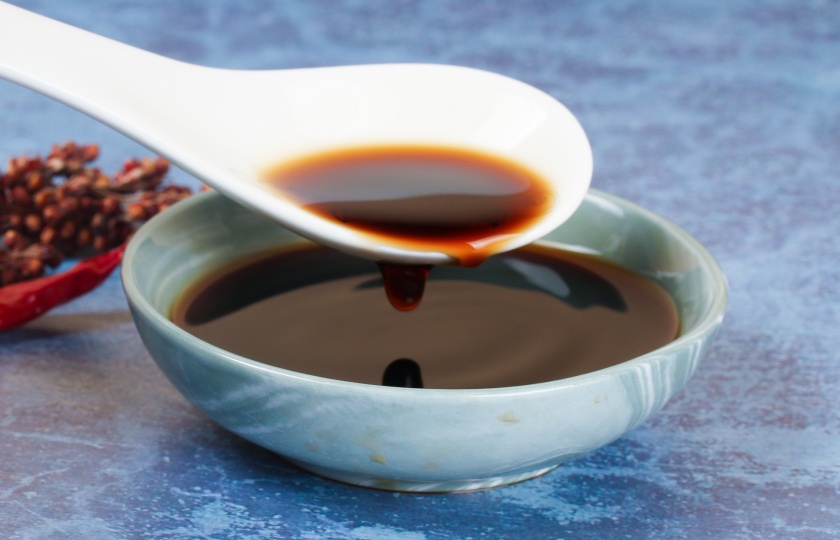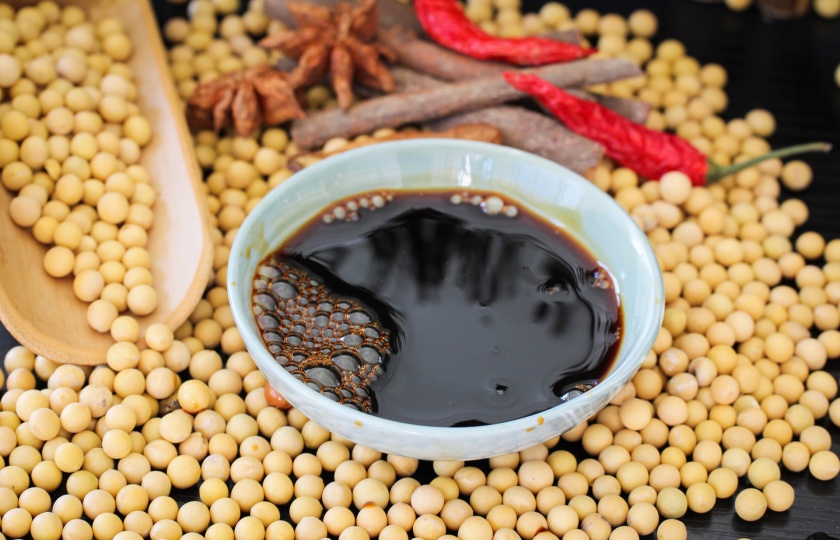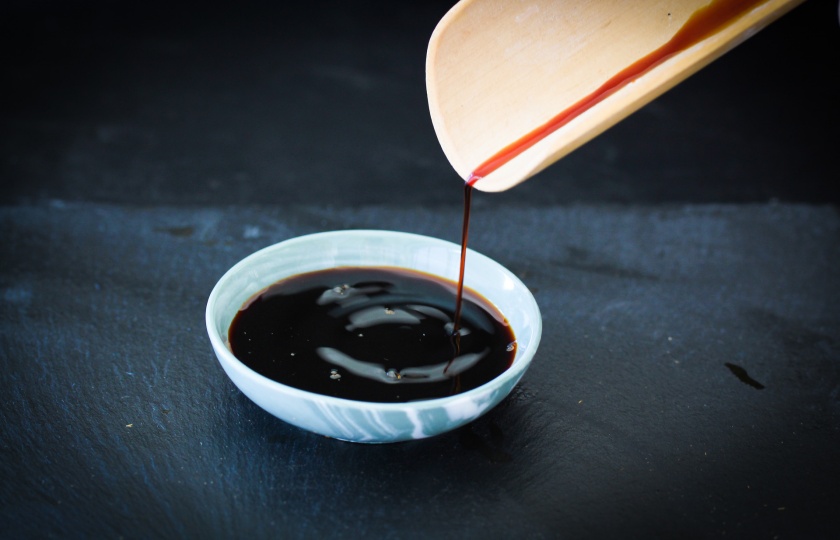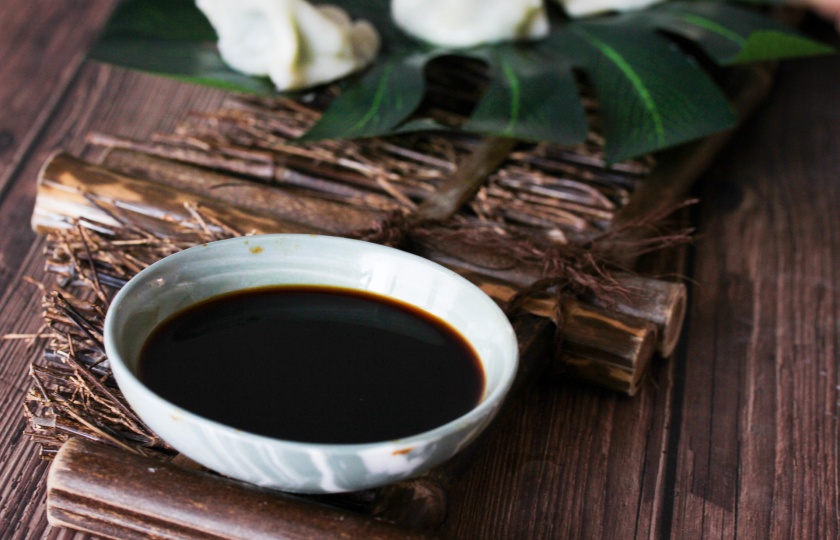Is there alcohol in soy sauce due to the wheat? Find out here!

If you like Chinese cuisine, then you must be familiar with soy sauce. Today, I will share with you a piece of knowledge: "Is the wheat in soy sauce alcohol?" Let's take a look together!
Is wheat in soy sauce alcohol?
The wheat in soy sauce is not alcohol.
In the process of soy sauce brewing, wheat is mainly used as a raw material to provide starch and protein. The starch in wheat will be decomposed into sugars by microorganisms. The sugars will then undergo a series of complex fermentation reactions to produce various amino acids, organic acids and flavor substances. These components constitute the unique flavor and color of soy sauce.
Although the fermentation process may produce a very small amount of alcohol, this alcohol is completely different. These trace amounts of alcohol will also evaporate during the subsequent processing due to long-term brewing and maturation. So there is basically no alcohol in soy sauce.
Moreover, the main taste of soy sauce is salty and fragrant, not the taste of alcohol. This also shows that wheat is not used to produce alcohol in soy sauce making.
Does soy sauce contain alcohol?
Some soy sauces contain a small amount of alcohol.
You should know that soy sauce is fermented from soybeans and wheat. In the brewing process of soy sauce, the sugar substances in the raw materials will be fermented by microorganisms. Just like yeast fermentation, this process will produce a small amount of alcohol, which is a natural product of fermentation. However, this alcohol content is very low, usually below 1%, or even lower.

In terms of technology, there are also some differences between traditional brewed soy sauce and modern process soy sauce in this regard. Traditional brewed soy sauce has a relatively long fermentation time. During this process, a small amount of alcohol produced may evaporate partly over time. For soy sauce produced by modern technology, strict quality inspections will be carried out on the product to ensure that the alcohol content is within a safe range and does not affect the flavor of soy sauce.
For most people, such a small amount of alcohol can basically be ignored in the cooking process. And when cooking, heating soy sauce will also make the alcohol further evaporate.
However, if you are very sensitive to alcohol or cannot come into contact with alcohol for religious or other reasons, when choosing soy sauce, you can carefully check the product label or consult the manufacturer to choose soy sauce that does not contain alcohol or has extremely low alcohol content.
Is there alcohol in gluten free soy sauce?
Gluten-free soy sauce does have some alcohol in it, but not a lot.
This soy sauce is made from the same ingredients as regular soy sauce, fermented soybeans. However, unlike regular soy sauce, which uses wheat, gluten-free soy sauce may use other grains or just soybeans.
During fermentation, in any soy sauce, some microorganisms turn sugars into alcohol. This is a natural part of the fermentation process, and the alcohol helps the soy sauce develop its flavor. However, the alcohol content in gluten-free soy sauce is generally only 0.5% to 2%.
If you are particularly concerned about alcohol, there are gluten-free soy sauces on the market that are labeled "alcohol-free." These soy sauces are processed a bit after fermentation to remove the alcohol, which is suitable for people who are sensitive to alcohol or cannot drink alcohol.
In general, although there is some alcohol in gluten-free soy sauce, it is not a large amount, and most people don't really need to worry too much. If you really want to avoid alcohol at all, choose soy sauces that are labeled "alcohol-free."
Is soy sauce halal?
Whether soy sauce is a halal food depends on its production process and the raw materials used.
Soy sauce itself is made by fermenting natural ingredients such as soybeans, wheat (or other grains), water and salt. Usually these raw materials themselves meet halal standards. So, in many cases, traditional soy sauce itself can be regarded as a halal food.

However, the key issue lies in whether the production process of soy sauce uses halal-certified raw materials and processes. For example, some soy sauces may use some non-halal additives, yeast, or alcohol and other ingredients in the production process. Especially in some industrially produced soy sauces, these ingredients may not meet halal requirements. Therefore, if you strictly follow a halal diet, it is best to choose soy sauce labeled as "halal-certified".
Halal-certified soy sauce will usually ensure that the entire production process complies with Islamic dietary regulations. The raw materials used, fermentation processes and any additives must meet halal standards. In addition, some soy sauces may be specially marked on the label as not containing alcohol, which is also an important reference for some people who follow a halal diet.
What are the ingredients in soy sauce?
Soybeans: As the basic raw material of soy sauce, soybeans provide the main amino acids and proteins for soy sauce, and are the core of soy sauce flavor. After fermentation, soybeans can release abundant umami and aroma.

Wheat (or other grain) : In traditional soy sauce, wheat is often fermented with soybeans to provide a certain sweetness and aroma. For gluten-free soy sauce, other grains, such as rice and corn, may be used instead of wheat.
Water: Water is a key ingredient in the soy sauce fermentation process, helping to activate yeast and bacteria to promote the fermentation reaction of soybeans and wheat.
Salt: salt not only gives soy sauce salty taste, but also plays a role in inhibiting the growth of harmful bacteria and ensuring the quality of soy sauce during the fermentation process. And can help adjust the consistency of soy sauce.
Yeast and microorganisms: During the fermentation of soy sauce, yeast and other microorganisms (such as lactic acid bacteria, fungi, etc.) play an important role. They break down starches and proteins in soybeans and wheat to produce amino acids, sugars and other flavor substances that make soy sauce taste richer.
Some soy sauce products, especially industrially produced soy sauce, may also add some additives, such as preservatives, colors, sweeteners, etc. In order to maintain flavor and extend shelf life, some soy sauce may also add some alcohol or flavoring ingredients.
Is soy sauce light or dark?
Soy sauce is a broad category. Both light soy sauce and dark soy sauce belong to soy sauce.
Light soy sauce has a relatively light color and is reddish-brown. Its taste is relatively salty and the umami is very prominent. The production process of light soy sauce is mainly to extract the first original juice after fermentation of raw materials such as soybeans and wheat. It is widely used in cooking. For example, it can be used to enhance the freshness of cold dishes and stir-fries.
Dark soy sauce has a very deep color, close to black. It is made by adding caramel color on the basis of light soy sauce through a special process. The taste of dark soy sauce is also salty, but its sweetness will be more obvious. It is mainly used to color dishes. For braised dishes, using dark soy sauce can make the dishes bright red in color and look very attractive.
Therefore, soy sauce cannot be simply said to be light soy sauce or dark soy sauce. They are both a type of soy sauce.























